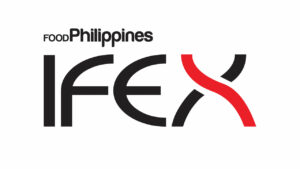Poor literacy, infrastructure may hamper fintech sector’s growth

THE lack of digital literacy and poor infrastructure are among the main hurdles to growth for the Philippine financial technology (fintech) sector, the Philippine Institute for Development Studies (PIDS) said.
“On the consumers’ side, technical know-how on the procedural requirements to access financial products and services and using digital platforms and technology may hinder the interest in fintech and digital platforms,” it said in a study released on Tuesday.
“Low levels of interest and knowledge can be associated with more reliance on traditional sources and less complex forms of financial products. This may also result in financial institutions’ reluctance to offer products and services digitally,” it added.
It also cited poor connectivity and high internet costs as challenges faced by the sector.
As of October 2021, the country ranked 67th in the global mobile download speed ranking at only 38.12 megabits per second, lower than the global average, PIDS said.
It also ranked 67th in terms of broadband download speed and 32nd among countries having the costliest monthly internet subscription rate.
There are also gaps in the current policies for fintech firms in the Philippines, it added.
“For instance, the lack of formal regulation or policy on fintech/insurtech (is) the sector’s weakness because it makes the approval process for fintech services solely reliant on the regulator. Instead, a regulation/policy should set the principles or conditions for prospective fintech players to follow,” it said.
The think tank also cited other challenges for the sector, which are the lack of access points and distrust towards technologies.
Access points are regulated entities where both cash-in and cash-out transactions can be performed, according to the Alliance of Financial Inclusion.
PIDS cited a study that showed that 37% of Filipino adults who transacted with access points in 2019 encountered issues, including long lines and queues, long service time, and personal data privacy issues.
“Although 84% of the issues encountered were resolved, a noticeable 16% were not addressed. Of those who encountered issues, only 10% contacted the regulators, as many of them either were not aware that regulators can be contacted (40%), did not know how to contact the regulators (35%), wanted to avoid the hassle (35%), or do not know the regulators’ contact information (32%),” it said.
“About half of mobile phone and internet users were unaware that these could be used for financial transactions, while others distrusted using these technologies. Some experienced unreliable internet connection, and others preferred to transact at the branch or through ATM,” it added.
PIDS also noted how there is no official definition of fintechs in the Philippines.
“Because of this lack of law or policy defining fintech, there is also difficulty in obtaining official indicators on the performance of the sector, it said.
On the other hand, it also cited bright spots, such as coherent government initiatives and plans, the implementation of the national identification system, and less stringent maintaining balance requirements.
To drive growth in the fintech sector, PIDS said that these firms must upskill and provide adequate training for its workers.
“The availability of highly skilled, technical financial services and entrepreneurial workers and stakeholders through academia and organizational development ensures that the industry can expand with low search costs,‚“ it said.
“Thus, the continuous formation of skills for all individuals to fill in the demands of fintech is an important aspect of talent formation,‚“ it added.
The study noted that enrollment in fintech-related disciplines has “fluctuated‚“ over the years.
“Meanwhile, data for business and technology-related graduates suggest a limited supply of fintech talent in the country. This is because the share of graduates from critical courses related to data science, such as engineering, mathematics, physics, and IT-related disciplines, has not improved since 2010,‚“ it said.
“The government should revisit its policies concerning higher education institutions and update the curriculum of related disciplines to prepare the graduates better and make them more competent, particularly those considering careers in fintech,‚“ it added.
Other opportunities for the sector are the country’s non-restrictive policy environment for cross-border data transfers and the growing adoption of fintech for market transactions.
“The sustained use of digital payments and fintechs in the country at the onset of the COVID-19 pandemic in 2020 has forced people to use alternative means of doing things, such as purchasing. The use of online marketplaces and e-money for buying items have increased, considering health and safety issues. Accordingly, this catalyzes the industry to grow faster than anticipated pre-pandemic,‚“ PIDS said.
From 2018 to 2019, e-money transactions rose by 36% while active e-money accounts increased by 76%.
“The fintech industry can also benefit from improving access to technologies, such as smartphones and internet, which are important infrastructural factors for people to get acquainted with more digital financial products and services,‚“ it added.
“While the sector benefits from a collaborative and forward-looking group of regulators, some policies and laws must be reviewed. In particular, there must be a policy that would define and monitor the progress of the fintech sector,‚“ it said.
PIDS said the government should create a concrete framework that “facilitates the reporting of transactions of platform operators to report product and transaction information which can be the basis for taxing digital transactions.‚“
The study said that the government should also boost financial inclusion to address the unequal access to fintech among Filipinos.
“The new administration must empower Filipinos in all socioeconomic strata by promoting fintech and providing an enabling environment for the sector to thrive,‚“ it added. — Luisa Maria Jacinta C. Jocson




